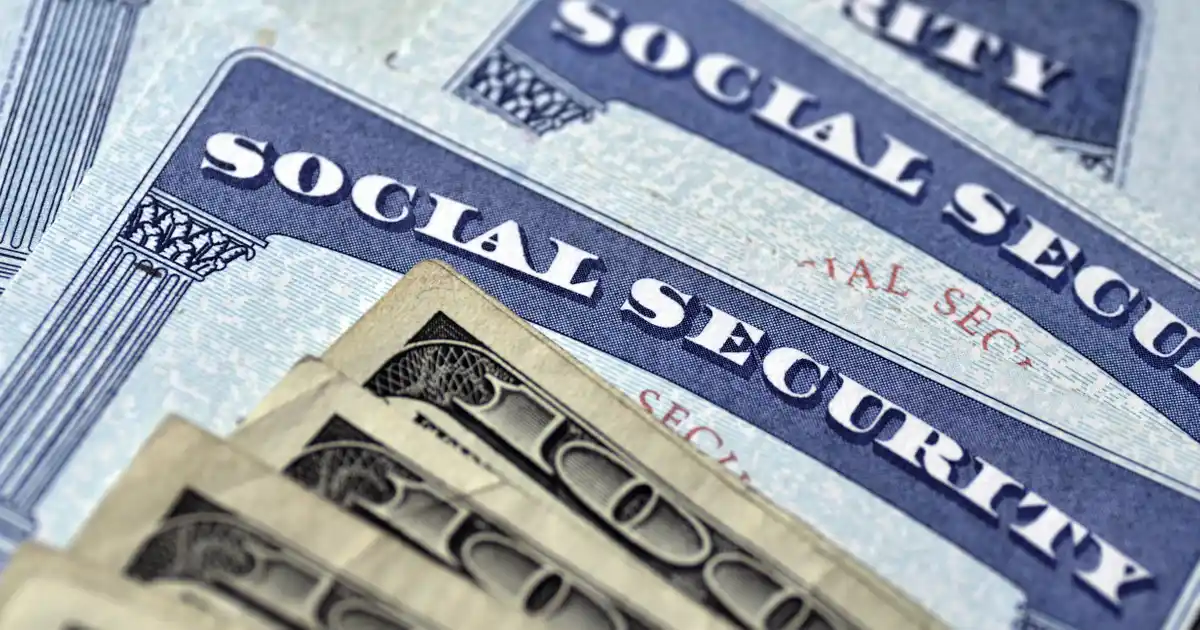You’re seeing new headlines about it every day. Inflation is skyrocketing in 2022, with every new month reporting anywhere between 5% and 12%, depending on the source. In short, everything is much more expensive these days. From fuel costs to grocery bills, Americans are feeling the pinch in their wallets like never before. For retirees living on a fixed income, the sudden increase in expenses can be worrying. A tank of gas shooting up close to 70% more definitely wasn’t in the budget.
Luckily, there are a few things you can do to combat inflation. By the end of this article, you should have a better idea of how to protect your retirement nest egg and make your dollars stretch a little farther. But before we get to that, let’s talk a little bit about inflation itself.
What Is Inflation?
In short, inflation is the gradual increase in the cost of goods and services, outpacing most people’s ability to earn higher incomes. It reduces the purchasing power of the dollar, making it a particular problem for retirees. After all, you are often on a very fixed income after you stop earning regular paychecks.
If you previously thought you had enough saved for an ample retirement, the rapidly increasing costs of… well, everything, is bound to be a bit concerning. Inflation can devalue your savings (and your income too, if you’re still working part-time). High inflation rates might require you to alter your retirement strategy a bit.
 Shutterstock
ShutterstockSources of Retirement Income
Before we talk about how to combat inflation, let’s quickly run through your potential sources of income in retirement. If you prepared yourself well, you’re hopefully able to draw income from multiple pools once you’ve stopped working for a living. Each of these sources is impacted by inflation in some way.
Social Security
Almost every retiree in America uses Social Security. After all, you’ve been paying into it for your entire working career. So you might as well collect it back when it’s time. There are a few quirks with the program, which allow you to collect a higher monthly benefit if you delay taking it as soon as you’re eligible.
The good news is that Social Security reevaluated its benefits amounts every year. These reevaluations are supposed to help balance out the inevitable cost-of-living increases. Unfortunately, many critics of the program argue that these Social Security increases aren’t sufficient. In fact, the Senior Citizens League estimates that Social Security payments have lost more almost a third of their purchasing power in the last two decades alone.
 Shutterstock
ShutterstockPensions
While they aren’t as common these days, more than half of American retirees currently collect a pension. They are retirement funds that were provided by the company you worked for, while you worked there. Unfortunately, pensions don’t play very well with inflation.
Most traditional pensions had their amounts tied directly to your last several years of income. You know, back when gas was still less than $2.00 per gallon? So if high inflation hits after you retire, those pension amounts are already set in stone. Those amounts are based on the market rate of your old job, back when you were still working it.
While some pension programs (mostly government ones) do attempt to factor in cost-of-living increases, it’s unlikely they will be raised enough to compensate for current inflation levels.
 Shutterstock
ShutterstockInterest, Dividends, and Investments
Hopefully, you have some investments that are paying out regular income. Some of these things move in line with inflation. Most notably, real estate investments tend to keep up with inflation, since the price of rent is one of the things most affected.
High inflation rates usually lead to the Federal Reserve raising interest rates. That can be a good thing for your bonds or investments which pay off interest. Unfortunately, high interest rates also slow down those borrowing money on credit. That, in turn, cools the economy off a little. This is all by design, as the Feds attempt to curb inflation. The result, though, can also see your investments being worth a bit less than they used to be.
 Shutterstock
ShutterstockWages
Wait, wages? Aren’t you supposed to be retired? For a variety of reasons, many retirees continue to work on a part-time basis. Whether they just need something to keep them busy, miss interacting with other people, or actually need the extra income, plenty of “retired” seniors continue to work.
While wages often lag behind the inflation rate, you can at least argue for current market value of the job you’re doing. Plenty of politicians support raising the federal minimum wage to $15 an hours (although that barely qualifies as a living wage these days). Some companies have increased their wages to try and help their employees combat the rising cost-of-living. Others have been reluctant to do so.
If you find yourself needing (or simply wanting) to work after retirement, make sure your pay is worth your time.
 Shutterstock
ShutterstockPrior Cash Savings
Maybe you’ve managed to squirrel away a large chunk of cash over your working life. Hopefully it’s in a high-yield savings account and not simply stuffed in a jar under your bed. The cash is great, because it’s a tangible asset that you can physically hold in your hands. It’s quick, easy, and cash is still king in many areas.
However, that cash is losing its purchasing power thanks to inflation. It doesn’t take a PhD in Economics to know that a single dollar doesn’t buy you nearly as much as it used to. That cash would have been better utilized by investing in some relatively safe mutual funds or ETFs.
One of the biggest mistakes that retirees make is assuming that their saving and investing days are over once they quit working. You may need another 30+ years of living expenses though, so don’t cash out your portfolios the day you hit 65 and put the cash under your mattress. Only use what you need and let the rest continue to invest and grow, if you can.
 Shutterstock
ShutterstockHow To Combat Inflation in Retirement
So your retirement income and savings are relatively fixed, but all your expenses are through the roof. How can you expect to keep up with inflation when you can’t simply ask your employer for a raise or test your value on the open job market? It can be tough. However, there are a few things you can do to help your fixed income combat inflation — even if only partially.
Reduce Housing Costs
Hopefully, your days of paying a regular mortgage or renting are over by the time you retire. However, not everyone is quite so lucky. Housing costs are almost always one of the largest recurring expenses we have. Therefore, reducing those housing costs can go a long way to helping the budget’s bottom line.
You might want to consider downsizing. Plenty of retirees sell their homes and use the proceeds to buy a smaller condo. There’s less upkeep and home ownership costs. Downsizing can also reduce your property taxes and decrease your utility bills. However, we don’t recommend you sell your home and start renting. Rental prices typically keep up with inflation, so that would be extremely counter-productive.
 Shutterstock
ShutterstockAdd Inflation-Related Investments
One of the best ways to combat inflation is to invest more. While the cost of living rises, so does the value of the stock market (eventually, at least). Certain investment segments tend to perform extremely well against inflation. Even if you don’t want to specialize your investments into a certain area, the stock market as a whole kicks out an annual average return of 6-to-10%.
One solid bet is moving some of your investments into Real Estate Investment Trust (REIT) funds. They put the money into real estate investments, which tend to stay healthy as market rent continues to increase. Another good option for keeping up with inflation is investing in the energy sector, as their value tends to not shrink when inflation hits hard.
 Shutterstock
ShutterstockDiversify Your Income
Hopefully you didn’t put all your retirement eggs in one basket. A healthy retirement income draws from many sources, including savings, pensions, 401(k) investments, Social Security, and yes, even supplemental wages. The idea is that with a diverse income stream, you can weather the storm that any one stream may be facing.
If all your retirement money is in stocks, and the market goes through a harsh downswing, it can be very scary. Likewise, if you lose your part-time job for any reason, you don’t want that to completely ruin your finances. You should have other sources of income to rely on. If you can, move away from relying on fixed-income sources of retirement income. Your pension and Social Security are useful, but they aren’t likely to be enough on their own.
 Shutterstock
ShutterstockPlan Ahead
One of the best things you can to combat inflation is plan ahead. Hopefully, you still have time for that. Although inflation is hitting us especially hard in the wake of the pandemic, it has always existed. The average inflation rate over the years is about 1.5-to-2%. That means even in “normal times,” goods and services are going to keep getting more expensive.
The earlier you start planning (and saving) for your retirement, the better. Start to plan your living situation, curb your consumer debts, and develop a diverse investment portfolio. Mix in some safer investments like bonds. Don’t get too risky, especially as your planned retirement age hits. The last thing you want is for your stake of Tesla stock to drop by 40% because Elon Musk makes a dumb tweet. And for God’s sake, don’t stake your retirement in Bitcoin.
 Shutterstock
ShutterstockThe Bottom Line
Inflation is an unfortunate fact of life. To make matters worse, the cost of goods and services tends to increase long before incomes go up to match it. That creates plenty of tight months (and years) as regular citizens struggle to pay these new costs with what basically amounts to last year’s budget.
Planning a diverse income stream and some smartly placed investments in retirement can help combat inflation. Real estate, especially, tends to do historically well during times of high inflation. Downsizing your living arrangements can also help, along with dozens of other ways to trim your budget in retirement.
 Shutterstock
Shutterstock







